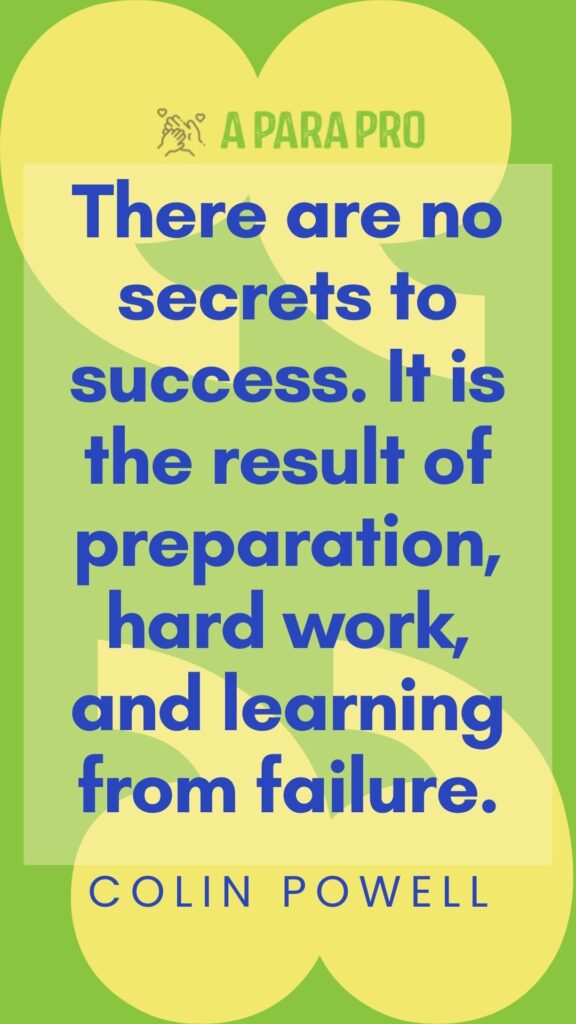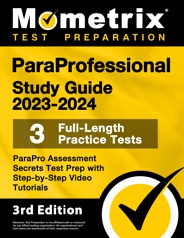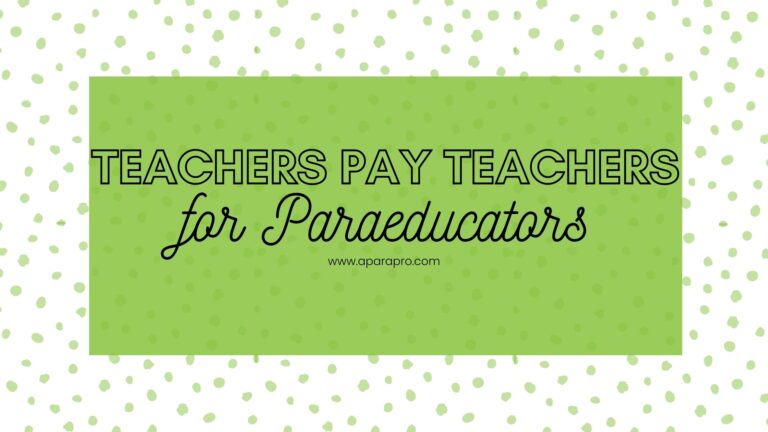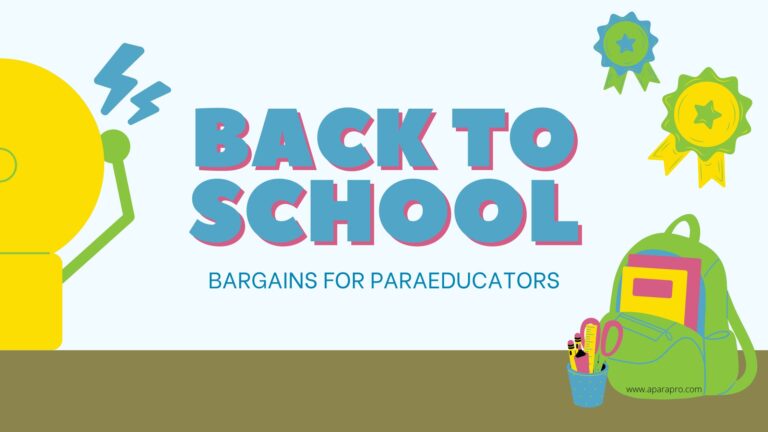How to Create a Study Schedule for Passing the Para Exam
Are you feeling overwhelmed by the prospect of studying for the Para Exam? With so much material to cover, it can be hard to know where to start. But fear not, friend! I’ll be sharing tips and tricks to help you create the perfect study schedule. One that will set you up for success with your para exam. Whether you’re a seasoned student or new to the game, this guide will provide you with the tools you need to create a study plan that works for you.
(This post may contain affiliate links which means I receive a small commission at no cost to you when you make a purchase. As an Amazon Associate, I earn from qualifying purchases.)
What is the best study schedule for a test?
When preparing for the paraeducator exam it is important to have a study schedule that allows for adequate preparation time without overwhelming yourself.
It is recommended to start studying several weeks in advance of the test, with shorter study sessions at first and gradually increasing the length and intensity of these sessions as the test date approaches.
Additionally, it is important to retain information, by reviewing material periodically, such as through flashcards or summarizing key concepts. By following a sensible study schedule, you can feel confident and well-prepared for your paraeducator exam.
How many hours should you study for an exam?
When it comes to studying for an exam, it is important to dedicate enough time to ensure that you are prepared. While some people may be able to get by with just a few hours of studying, others may need to put in much more time and effort to fully grasp the material.
Determine how many hours you should study for an exam.
Consider the subject matter, your familiarity with the material, and the difficulty level of the exam. For example, if you are studying for a math exam and struggle with the concepts, you may need to dedicate several hours each day in the weeks leading up to the exam. On the other hand, if you are studying for reading comprehension and already have a strong understanding of the material, you may need less time to prepare.
Consider your own learning style.
Some people may need to spend more time reading and taking notes, while others may benefit from hands-on activities or group study sessions. Experiment with different study methods perhaps a tutor, to determine what works best for you.
Overall, it is better to err on the side of caution and spend more time studying than you think you need. This will not only help you be better prepared for the exam, but it will also help build your confidence and reduce test anxiety.
When is the best time to study for an exam?
This is a question that has been asked by students for generations. Some say that studying in the morning is the most effective, while others argue that studying at night is better. However, the truth is that the best time to study for an exam depends on a variety of factors, including the individual's learning style, the amount of material to be covered, and the time available before the exam.
What's your individual learning style?
For instance, if you're a morning person, you might find that studying in the morning works best for you. This is because your brain is fresh and alert, and you're less likely to be distracted by outside factors.
On the other hand, if you're a night owl, you might find that studying at night is more effective. This is because your brain is more active during this time, and you're less likely to be interrupted by phone calls, texts, or other distractions.
What is the amount of material to be covered?
If you have a lot of material to cover before an exam, you might want to start studying as early as possible. This will give you more time to review the material and ensure that you fully understand it. However, if you only have a little bit of material to cover, you might be able to wait until closer to the exam to start studying.
How much time do you have available before the exam?
If you have a lot of time before the exam, you might be able to spread out your studying over several days or weeks. This can help you avoid cramming and ensure that you retain the information for the long term. However, if you only have a few days or hours before the exam, you might need to study intensively during that time to ensure that you're fully prepared.
Now that you've considered these factors it is time to develop a study plan that works for you!
How to Create a Para Exam Study Schedule in 3 Steps
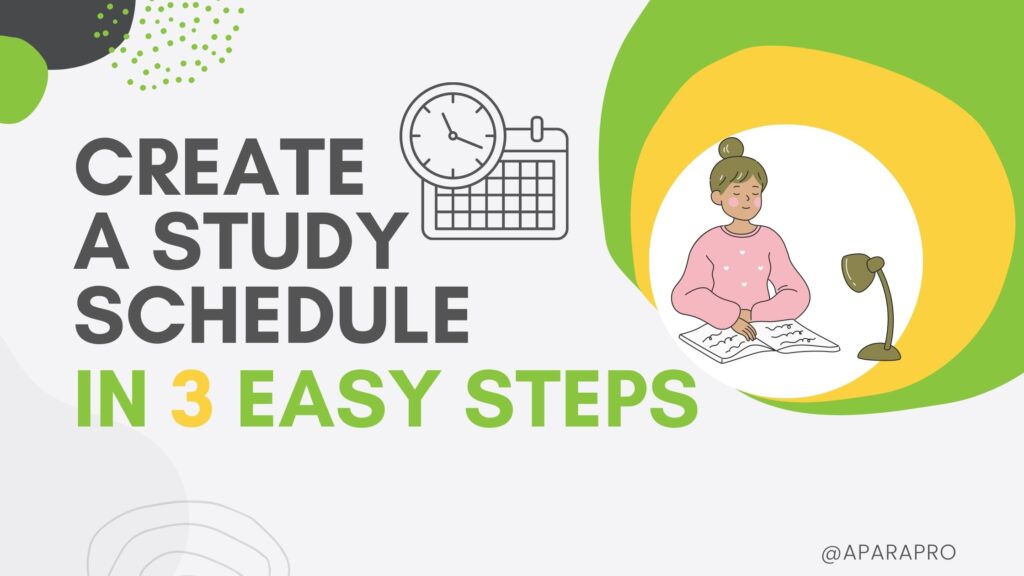
Step 1: Assess Your Current Knowledge
Before you start creating your study schedule, it’s essential to know where you stand in terms of your current knowledge. I highly suggest you take a practice test or two to get a baseline for your strengths and weaknesses.
Once you have a clear understanding of where you need to focus your efforts, you can start building a study plan that plays to your strengths.
Identify Your Weaknesses
Take the time to review the results of your practice tests and identify the areas where you struggled the most. These will be the topics you need to focus on in your study schedule. By identifying your weaknesses early on, you can create a plan that maximizes your study time and helps you improve in the areas where you need it most.
Build on Your Strengths
Don’t forget to also take note of the areas where you did well on your practice tests. These topics should also be incorporated into your study schedule but with less time allocated to them.

Building on your strengths will help you reinforce your knowledge and boost your confidence going into the exam.
Step 2: Set Realistic Goals
When creating a study schedule, it’s important to set realistic goals. While it’s tempting to try and cram as much studying into your schedule as possible, this can actually be counterproductive. By setting goals that are achievable and realistic, you’ll be more likely to stick to your plan and avoid burnout.
Break Your Goals Down into Smaller Tasks
To make your goals more achievable, break them down into smaller tasks. This will make them feel more manageable and help you stay motivated as you progress through your study schedule. For example, if you want to review a specific section in your study guide, break it down into smaller sections and allocate specific times to review each section.
Be Flexible
Remember, your study schedule should be flexible. Life happens, and unexpected things can come up that throw a wrench in your plans. Don’t be too hard on yourself if you fall behind on your schedule or need to make adjustments. Give yourself grace. The key is to stay focused on your goals and be willing to adapt your plan as needed.
Step 3: Make Time for Rest and Relaxation
While it’s important to study hard, it’s also important to make time for rest and relaxation. Your brain needs time to recharge in order to perform at its best. Incorporating breaks and leisure activities into your study schedule can actually help you stay focused and retain information better.
Schedule Regular Breaks
Make sure to schedule regular breaks into your study schedule. This will help you avoid burnout and allow your brain to recharge. Try to take a short break every hour or so to stretch your legs, grab a snack, or just take a few deep breaths.
Incorporate Leisure Activities
Don’t forget to also incorporate leisure activities into your study schedule. This can include things like exercise, spending time with friends and family, or indulging in a hobby you enjoy. Taking time to do things you enjoy can help you reduce stress and stay motivated throughout the study process.
Lastly
Creating a study schedule for the Para Exam may seem like a daunting task, but with the right mindset and approach, it can actually be a fun and rewarding experience. By assessing your current knowledge, setting realistic goals, and making time for rest and relaxation, you’ll be well on your way to acing the exam.
Sign up for my – Becoming A Paraeducator Blueprint: The Ultimate Checklist for Becoming a Paraeducator – today!

This comprehensive checklist covers all the essential steps you need to take to prepare for the paraeducator exam and start your career as a paraeducator.
With this blueprint, you'll receive personalized guidance and support to help you succeed on the exam and in your career.
take the first step toward achieving your goal of becoming a paraeducator!
So what are you waiting for? Use these tips and tricks to create your own para exam study schedule and take control of your study journey. Happy studying!
PIN FOR LATER

